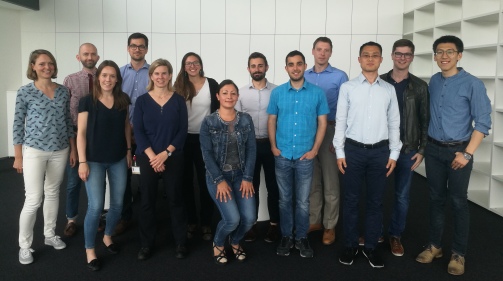On Wednesday May 30th, a delegation of junior researchers affiliated with the Earth System Governance (ESG) project, the largest social science research network in the area of governance and global environmental change, visited the Graduate Institute. The Centre of International Environmental Studies (CIES) hosted a workshop to facilitate exchange between the ESG visitors and the Institute’s researchers working on environmental governance.
In the workshop, Dr Joëlle Noailly and Dr Velibor Jakovleski introduced research at the Institute’s CIES and Global Governance Centre respectively, and both noted the need to explore further collaboration between their centres and the ESG network. Dr Karsten Schulz, from the University of Groningen, presented the ESG project, including its current research agenda and new science plan. Gianluca Gygax, the President of the Environmental Committee at the Graduate Institute, presented student initiatives to promote sustainability on campus. The two ESG fellows at the Graduate Institute, Dr James Hollway and Yixian Sun discussed their research on earth system governance and benefits from the ESG network. Two ESG visitors and three PhD students from the Graduate Institute also gave presentations on their research and received feedback from other participants. With the success of this event, CIES looks forward to strengthening connections between the Institute’s research community and the ESG network.
On the ESG project:
Earth System Governance is an interdisciplinary global research alliance that takes up the challenge of exploring political solutions and novel, more effective governance mechanisms to cope with the current transitions in the biogeochemical systems of the planet. The project aims to examine not only problems of the ‘global commons’, but also local problems from air pollution to the preservation of waters, waste treatment or desertification and soil degradation. The normative context of this research is sustainable development; earth system governance is not only a question of institutional effectiveness, but also of political legitimacy and social justice.
See more about the ESG here.



